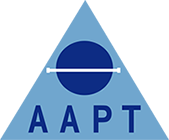News
Guidance for staff responsible for care after death (last offices)
Guidance out today highlights the wide-ranging and sensitive care it is helpful that nurses and their colleagues undertake when an adult dies.
Guidance out today highlights the wide-ranging and sensitive care it is helpful that nurses and their colleagues undertake when an adult dies.
Guidance for staff responsible for care after death (last offices) emphasises that the care extends well beyond physically preparing the body for transfer either to the mortuary or funeral director.
The care includes:
- Ensuring that the deceased and their family/carers have their privacy and dignity respected at all times
- Honouring the spiritual and cultural wishes of the deceased person and their family/carers
- Honouring people’s wishes for organ and tissue donation
- Ensuring the health and safety of everyone who comes into contact with the body
- Ensuring that if the death is being referred to the coroner no action is taken which might impede establishing the cause of death
- Ensuring correct certification procedures have been followed
- Care after death can be made less stressful by discussions while the patient is still alive around issues such as organ donation and cultural attitudes towards death.
The work was initiated by the National Palliative Care Nurse Consultants Group and undertaken in partnership with the National End of Life Care Programme (NEoLCP). It has been endorsed by the Royal College of Nursing and the Royal College of Pathologists. All organisations identified as being involved in the pathways of care of the deceased have contributed to the development of the guidance.
Claire Henry, director of the NEoLCP, said: “It is important that this work has been driven by the nursing profession. It should help individual professionals and teams but also encourage organisations to develop training and protocols in this sensitive area of care.”
While primarily focussed on the practice of nurses and doctors, the brief and user-friendly guidance could also be relevant to other professions such as care home staff, funeral directors, morticians, the police and coroners and their teams.
Co-ordinated working between these professionals and their agencies is essential.
Lead author and a member of the nurse consultants group, Jo Wilson, said: “This document articulates pathways of care for the person who has died from the time of death to burial or cremation. Many professions are involved in providing care after death and it is excellent that all relevant national organisations have provided input to the document.
“This has resulted in a document which gives guidance to ensure the deceased and their family are kept at the focus of care with their privacy and dignity maintained. It shows how this can be achieving while ensuring that issues such as tissue donation, coroner’s requirements, and the health and safety of all staff are addressed.”
The guidance will soon be reinforced by two new learning sessions on care after death available through e-ELCA (End of Life Care for All). This resource, developed by the NEoLCP in association with e-Learning for Healthcare and the Association for Palliative Medicine, is available free to many health and social care staff.
The guidance is the first in a series of forthcoming publications around care after death - including a revision of the Department of Health’s 2005 document, When a Patient Dies.
Further Information
The National End of Life Care Programme supports the implementation of the Department of Health’s End of Life Care Strategy. For more information visit the programme’s website at www.endoflifecareforadults.nhs.uk
To download a copy of the guidance head to the Publications page of aaptuk.org
For more information on this guide or the work of the NEoLCP (journalists only) please call Chris Mahony from Furner Communications on 0207 923 7677 or 0781 2692722 or email chris@furnercommunications.co.uk.
